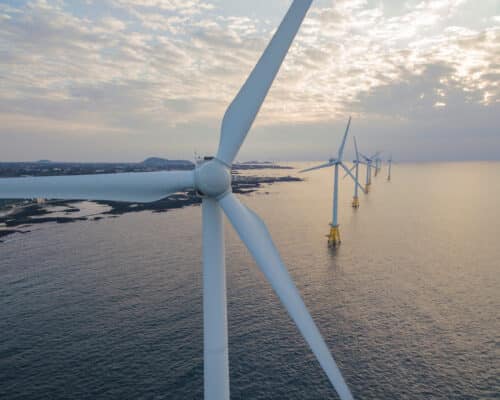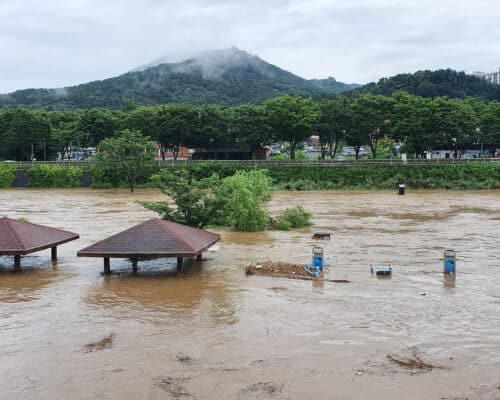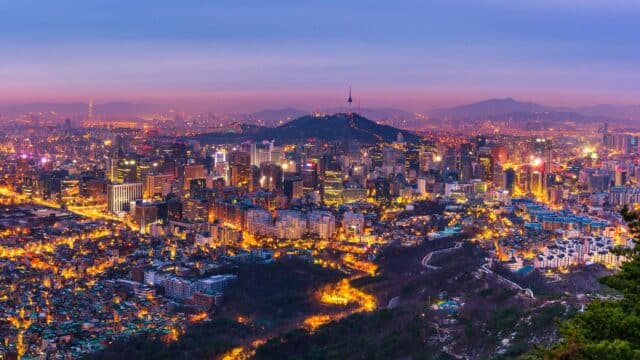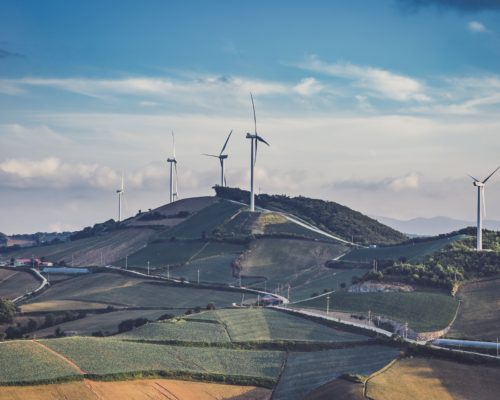South Korea

The 2025 APEC Meeting: Opportunity For South Korea to Step Up
The sluggish global emissions reduction progress and the worsening climate emergency necessitate all hands on deck. South Korea, which has historically been among the biggest climate laggards, can change course and help lead Asia towards a cleaner and more sustainable future.

Offshore Wind Offers South Korea Huge Economic Opportunities: GWEC
According to the GWEC, offshore wind power can bring South Korea 770,000 new jobs and 87 trillion won (USD 63 billion) in investments over seven years. However, unlocking these gains requires a holistic plan where the government and stakeholders collaborate to introduce favourable supporting policies and advance community-focused offshore wind deployment.

South Korea’s Energy Mix and Its 10th Basic Energy Plan
South Korea's decarbonisation progress so far makes hitting its 2030 and 2050 targets unrealistic. In its current form, the 10th Basic Energy Plan that will come into force this year is unlikely to change that. The country needs more ambitious renewable energy targets, a sentiment also echoed by South Korea's biggest businesses.
Green Transportation in South Korea – a Key Enabler for the Net-Zero Revolution
South Korea is facing an uphill battle to make notable progress towards clean energy in line with the Paris Agreement commitments. Green transportation appears to be one of the most powerful tools in the government's arsenal. The opportunities in the industry are huge, while the challenges are solvable.

South Korea’s Energy Mix: Prominent Role of Fossil Fuels
The IEEFA warns that South Korea’s misplaced faith in fossil fuels could create a vicious cycle of spiralling energy costs, derailed decarbonisation progress and loss of opportunities as investors back the transition to renewable energy.
Wind Energy in South Korea – Opportunities and Challenges
The wind energy sector can become the difference that gives South Korea's renewable energy progress that much-needed boost. The country's vast potential for offshore wind is already starting to attract some of the leading developers in the industry. Judging by the first signs, South Korea's future promises to be "windy."

Climate Change in South Korea: Floods, Heat and Looking Away
South Korea's strategy to address climate change's impacts is reactive, not proactive, while its newly adopted policies and upcoming plans continue to undermine renewables.
Samsung Joins RE100: The Effect on South Korea’s Clean Energy Progress
Korean RE100 members have to take leadership by pushing policy-makers to expand renewable energy supply and lower prices. Samsung's involvement can be the decisive factor that urges the Korean leadership to make a change.

South Korea’s Renewable Energy Transition and Its Barriers
An analysis of the main obstacles that slow down the renewable energy transition in South Korea and the country's efforts to achieve net-zero by 2050.

South Korea Needs Leadership and Unity to Tackle Climate Change
South Korean president-elect Yoon Suk-yeol's climate change and clean energy policies leave much to be desired despite net-zero pledges.
South Korean Green Taxonomy Declared ‘Gas is Green’
The government's decision to include gas in the Korean green taxonomy risks jeopardising the country's net-zero plans. Investors and environmental groups were quick to raise concerns, stating that, as a fossil fuel, gas carries high financial and climate risks. The question is will the Korean government listen?
South Korea’s Industrial Giants Respond to Government’s Net-Zero Goals
South Korea aims to achieve net-zero by 2050. The key to succeeding lies in enabling its world-leading industry to decarbonise at scale. While some companies are already making progress on that front, others hesitate. But the time for this is long gone.
The Risks of the Continued Reliance on Oil and Gas in South Korea
South Korea's green commitments are a breadth of fresh air for a world, strangled in carbon emissions. But the country still isn't ready to abandon oil and gas.
Innovation as the Driving Force Behind the Transition to Renewable Energy in South Korea
Compared to other countries, the pace of South Korea's renewable energy transition leaves a lot to be desired. However, the latest Green New Deal shows the officials' determination to change the country's course, but will it be enough?
Most Popular
Categories
-
10
-
35
-
126
-
4
-
17
-
46
-
52
-
11
-
10
-
15
-
24
-
6
-
1
-
5
-
6
-
285
-
200
-
17
-
24
-
1
-
1
-
23
-
41
-
44
-
88
-
18
-
86
-
41
-
17
-
11
-
43
-
54
-
86
-
299
-
22
-
44
-
36
-
11
-
42
-
36

